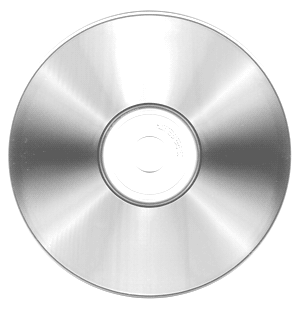


"Let's Straighten It Out"
Latimore
Composed by Benny Latimore
February 1, 2014: NEW ARTIST GUIDE ALERT!

--Daddy B. Nice
About Latimore
Benny Latimore was born in Charleston, Tennessee in 1939. He entered the music business in the early sixties as a pianist for various Florida-based groups including Joe Henderson and Steve Alaimo, and began recording singles for the Florida-based Dade and Glades labels under the name "Benny Latimore."
Steve Alaimo, who had had a pop-chart hit with "Every Day I Have To Cry," became Latimore's producer. Their first recording of substance, a cover of T-Bone Walker's "Stormy Monday," came out in 1973 (from the album, Latimore, on Henry Stone's Glades label).
Then Latimore came up with a self-penned song, "Let's Straighten It Out," and history was made. Using only a rhythm section and Latimore on a Fender Rhodes piano, with Latimore not only singing lead vocal (with discreet female backup) but delivering a two-minute-plus spoken-word prologue, the Alaimo-produced track rocketed to Number 2 on the R&B charts (inexplicably never making number one) and made a solid showing on the pop charts. The album, More, More, More, was released in 1974. The lead cut on the More, More, More album (containing "Let's Straighten It Out") was a cover of Bobby "Blue" Bland's classic, "Ain't Nothin' You Can Do."
"Let's Straighten It Out" was a revolutionary record because it redefined the blues in a startlingly original way. The record captured all of the feeling of the blues, but it put that feeling into an upbeat, streamlined, impeccably-arranged musical format. Yet, as successful as it was, "Let's Straighten It Out" was largely lost in the deluge of mid-seventies musical material (singer-songwriter, reggae, disco, etc.), which were all peaking around that time. But for a coterie of soul musicians and fans, "Let's Straighten It Out" became a talisman of what R&B could become. Songwriter/performers like Texas-born Mel Waiters and Chicago's The Love Doctor--to name only a couple--heard and absorbed Latimore's style from far beyond the usual chitlin' circuit venues.
Latimore always looked the part--not that that was requisite to the success of his musical art. Ruggedly handsome, with a long mane of hair and a regal bearing, he looked the way he sounded, which was like a lion, the king of the jungle. (In later years, he's become known as "the Silver Fox.")
Latimore's work ethic was--and continues to be--unflagging. He has released CD's regularly since the mid-seventies. In the eighties he moved to Southern Soul's venerable Malaco Records in Jackson, Mississippi, joining fellow stars like Johnnie Taylor, Z. Z. Hill and Bobby "Blue" Bland to form the nucleus behind the soul-blues hybrid "sound" that would become today's Southern Soul genre.
Latimore has achieved other hits over the course of his career--"Keep the Home Fires Burning" and "Something 'Bout Cha" from the early years, "Lay Another Log On The Fire" from the later years--but nothing to match "Let's Straighten It Out." The latter has received the ultimate tribute: inclusion on countless "compilation" albums.
Song's Transcendent Moment
"How in the hell
Do you expect me to understand?
When I don't even know
What's going on?"
Tidbits
1.
Oct. 2, 2006. Gwen McCrae has released a new version of "Let's Straighten It Out," and it's proving popular with chitlin' circuit deejays. Latimore himself duets with McCrae. The song doesn't have the power of the original, but it percolates with a slow passion that's reminiscent of the original, and it does it no disservice.
Incidentally, one of Latimore's R&B chart-mates back in the seventies was George McCrae. McCrae's influential "Rock Your Baby (Take Me In Your Arms)" hit the charts around the time "Let's Straighten It Out" did. You can hear them both on Billboard's Top Ten R&B 1974. (George and Gwen McCrae were married for a short time in the 1970's.)
DBN
2.
January 31, 2008.
Back 'Atcha, Latimore's latest (Latstone 07), is very obviously an attempt at a full-fledged Southern Soul album, with up-to-date chitlin' circuit themes and appeal, and you've got to respect that. Any time the singer who still possesses one of the strongest and sincerest voices in rhythm and blues wants to "riff" is an occasion for joy.
And yet, there is no "Let's Straighten It Out" or "Lay Another Log On The Fire" here. The (Bargain-Priced) Back 'Atcha CD is a good collection of songs that simply comes up a little short at critical points, and there's no better example than the CD's showcase single "My Give A Damn Gave Out A Long Time Ago."
"My Give A Damn" has a magnificent introductory hook (part Latimore's vocal, part guitar--or does he still use that Fender Rhodes to get that guitar sound?), but the hook is in the verse--and subsequent verses--not in the chorus.
The chorus--where, as you'd expect, Latt crescendoes for dramatic effect--is almost non-existent, musically-speaking. When Latt gets to the peak of the chorus--
"My give a damn gave out
A long time ago,"
--he drops off singing and lapses into speech. It's not because he has some cool "Staighten It Out" type monologue in mind. The reason he does that is because there is no melody to sing.
I don't know what key the song is done in, but the entire phrase rattles along on the same base note of that key, with Latt hopping up a chord in a kind of shout at one point. That's it. The brass section's repeated notes are all there is to hang your hat on.
Sadly, the chorus squanders the incredible soulfulness contained in the verses, and the song loses much of what it has going for it, which is considerable. But that initial hook is so good (and Latimore sings it with such relish)--
"And I came in early one morning
And the woman didn't even open the door."
--you just wish you could force him back into the studio and lock him him up until he discovered a chorus hook with some "meat on its bones".
Back 'Atcha is still so new you'd get paint on you if you rubbed up too close, so I hasten to add these are only first impressions. It will be interesting to see how the other music from the CD fares as the year unfolds.
I'm currently fascinated by the cut, "'Nanna Puddin'" (See Daddy B. Nice's Top Ten Southern Soul Breaking Singles: Feb 08.) "'Nanna Puddin'" (great title), relatively "stripped down" for Latt although still fairly bombastic by most artists' standards, may turn out to be a bigger hit than "My Give A Damn Gave Out."
I wonder if Latimore has ever thought about doing something really stripped-down--stripped down the way "Let's Straighten It Out" was back in the day, as a matter of fact. How about Latimore doing a gritty male version of Frederick Knight's song, "Someone Else's Bed" (recently done by Mashaa)?
DBN
3.
Daddy B. Nice's Note: September 30, 2009:
Latt' is back! It seems I was saying the same thing a year ago with the appearance of the Back 'Atcha album, but that CD held the significance of being a dramatic "comeback" album, with the hit single "My Give A Damn Gave Out" and its follow-up, "Nanna Puddin'," not to mention the overlooked "Edna Mae" making the "Let's Straighten It Out" icon of Southern Soul relevant once more.
Now Henry Stone, the producer behind Latimore's career resurgence, and Latimore have found another great single in the melodious "Around The World." (See Daddy B. Nice's Top Ten "Breaking" Southern Soul Singles: Number Two, October 2009.) It's a majestic song by present-day standards, and Latimore is more than equal to the task.
Only a few years ago, Latimore seemed to be an esteemed forerunner in the twilight of his career, but his association with Henry Stone has changed all that. Latt' has legitimately rejoined the chase for contemporary stardom.
--Daddy B. Nice
4.
NEW ALBUM ALERT: May 5, 2010:
All About The Rhythm & The Blues
See Daddy B. Nice's Top 10 "Breaking" Southern Soul Singles: May 2010-----"Don't Give Up On Our Love"
See Daddy B. Nice's Top 25 Songs Of 2009: "Around The World" by Latimore
If You Liked. . . You'll Love
"If you liked Brook Benton's "Rainy Night In Georgia," you'll love Latimore's "Let's Straighten It Out."
EDITOR'S NOTE
In the late nineties, when I first began to visualize a charting of Southern Soul music, my overriding motive was to correct what I perceived to be a grievous wrong. When I searched the Internet for information on the great artists I heard on radio stations on my trips through the South, I could find nothing about them. I was able to find information on blues and soul artists up to about the 1980's, but anything more contemporary was still a "dark continent"--unknown, unexplored and unmemorialized. Even "southern soul" was a suspect term, used mainly as an adjective to describe older artists geographically tied to the Deep South.
To help right that wrong, I went about constructing a Top 100 chart of the best Southern Soul artists from the 90's to the present, and I profiled those performers in "artist guides". But when I had finished that chart (Daddy B. Nice's Top 100), I again found myself faced with a wrong. This time the oversight was my lack of attention to the artists whose best material had been recorded prior to the 90's and 00's, artists without whom the Southern Soul phenomenon would never have occurred. Yes, one could find information on these performers on the Internet, but not up-to-date information, and not in the context of contemporary Southern Soul.
That is what brought me to formulate the chart you are reading: "Forerunners." Rhythm & Blues as it's played, appreciated and revered in the Deep South. The Golden Oldies of the Chitlin' Circuit. The artists who "count" and the songs that "matter" to the artists, producers and deejays who understand and create the Southern Soul sound. And that's different--although not altogether different--from the soul music many of us grew up listening to outside the Deep South. Although fans may be coming to this music long after it was first recorded, I believe it will only whet their appetite for Southern Soul music all the more. DBN.
Honorary "B" Side
"Lay Another Log On The Fire"




























































































©2005-2026 SouthernSoulRnB.com
All material--written or visual--on this website is copyrighted and the exclusive property of SouthernSoulRnB.com, LLC. Any use or reproduction of the material outside the website is strictly forbidden, unless expressly authorized by SouthernSoulRnB.com. (Material up to 300 words may be quoted without permission if "Daddy B. Nice's Southern Soul RnB.com" is listed as the source and a link to http://www.southernsoulrnb.com/ is provided.)
